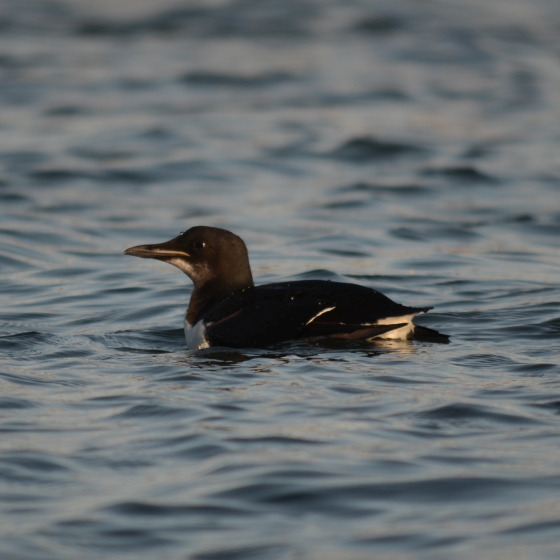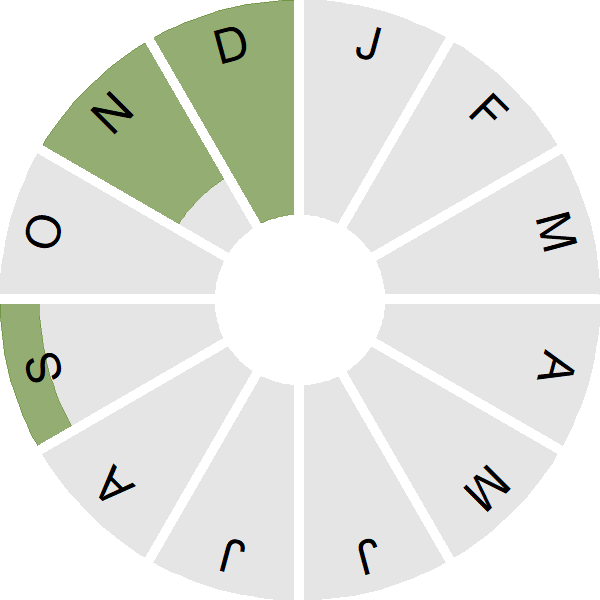Brunnich's Guillemot

Introduction
This larger relative of our Common Guillemot holds the record as the deepest-diving seabird and is a very occasional visitor from its breeding colonies in Iceland and northern Norway.

Key Stats
Status and Trends
Conservation Status
Population Size
Population Change
Population trends of this scarce species are not routinely monitored.
Distribution
This vagrant is too rarely reported to map distribution.
European Distribution Map
Distribution Change
This vagrant is too rarely reported to map distribution change.
Seasonality
Brünnich's Guillemot is a very rare vagrant in autumn and winter.
Weekly pattern of occurrence
The graph shows when the species is present in the UK, with taller bars indicating a higher likelihood of encountering the species in appropriate regions and habitats.

Movement
Britain & Ireland movement
European movements
EuroBirdPortal uses birdwatcher's records, such as those logged in BirdTrack to map the flows of birds as they arrive and depart Europe. See maps for this species here.
The Eurasian-African Migration Atlas shows movements of individual birds ringed or recovered in Europe. See maps for this species here.
Biology
Survival and Longevity
Survival is shown as the proportion of birds surviving from one year to the next and is derived from bird ringing data. It can also be used to estimate how long birds typically live.
Classification, names and codes
Classification and Codes
- Order: Charadriiformes
- Family: Alcidae
- Scientific name: Uria lomvia
- Authority: Linnaeus, 1758
- BTO 2-letter code: TZ
- BTO 5-letter code: BRUGU
- Euring code number: 6350
Alternate species names
- Catalan: somorgollaire de Brünnich
- Czech: alkoun tlustozobý
- Danish: Polarlomvie
- Dutch: Kortbekzeekoet
- Estonian: põhjatirk
- Finnish: pohjankiisla
- French: Guillemot de Brünnich
- German: Dickschnabellumme
- Hungarian: vastagcsoru lumma
- Icelandic: Stuttnefja
- Irish: Foracha Brünnich
- Italian: Uria di Brunnich
- Latvian: resnknabja kaira
- Lithuanian: storasnapis narunelis
- Norwegian: Polarlomvi
- Polish: nurzyk polarny
- Portuguese: airo-de-freio
- Slovak: norec hrubozobý
- Slovenian: debelokljuna lumna
- Spanish: Arao de Brünnich
- Swedish: spetsbergsgrissla

